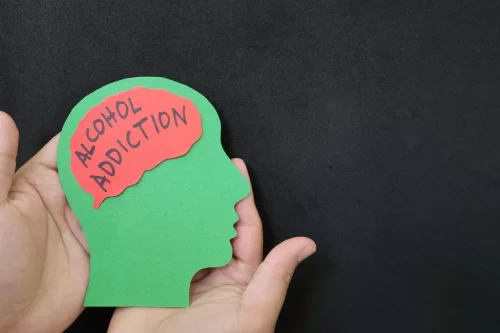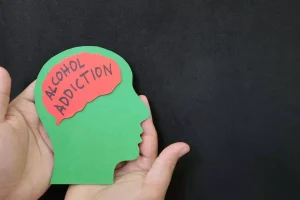Research indicates that individuals with narcissistic tendencies are more likely to develop alcohol-related problems and engage in excessive drinking behaviors. As parents, covert narcissists often prioritize their own needs over their children’s well-being. They exhibit manipulative behaviors, such as guilt-tripping and gaslighting, to control and undermine their child’s relationship with the other parent. When navigating covert narcissistic alienation, understanding effective coping strategies becomes imperative to safeguard emotional well-being and counteract manipulation tactics employed by the abuser. In conclusion, the stark differences between covert and communal narcissists can’t be overstated. While covert narcissists operate in the shadows, manipulating and gaslighting those around them, communal narcissists masquerade as selfless individuals while seeking validation and admiration.
Community and Family Support
- It helps individuals identify and change negative thought patterns and behaviors related to both conditions.
- I have reached a conclusion that my meaning has borderline personality disorder.
- Partners may feel unappreciated and undervalued, leading to resentment and conflict.
- Some research has found racial differences in regards to college drinking.
In addition to looking for the red flags of a narcissist, it is also important to be able to recognize the more subtle behaviors of a covert narcissist. Being aware of these traits can help empower you, helping you to recognize and better navigate potentially unhealthy relationships and interactions. Calling out covert narcissism can be difficult, but it starts with being mindful of behavioral patterns and paying attention to that gut feeling you have when something feels a little off. Covert narcissism (also known as vulnerable narcissism) is the more introverted side of NPD. A covert narcissist experiences the same insecurities as an overt narcissist, but internalizes their self-importance, often while hyper-focusing on their need for attention. One of the biggest barriers to seeking help—beyond shame, humiliation, and not trusting one’s judgment—is the covert narcissist’s favorable behavior in public.
Defining Narcissistic Personality Disorder (NPD)
- The intersection of alcoholism and narcissism is an area of increasing interest in the field of psychology.
- Exercise, meditation, and journaling can help manage stress when dealing with a narcissistic alcoholic.
- Try to calmly explain how you feel but if the other person isn’t receptive, you may want to end the conversation and consider how you want to proceed with the relationship.
- But substance abusers can decide to stop the consumption of alcohol or drugs.
- They are very wary of challenges because they can take rejection and failure and criticism and disagreement, much more so than the narcissist, they are very hypervigilant, much more than the classic narcissist.
People who exhibit narcissistic traits without meeting the criteria for NPD are said to have “subclinical” narcissism. Understanding the impact of covert narcissism on recovery is crucial for effectively addressing addiction in individuals with narcissistic traits. Narcissists with addiction may use substances to support their False Self, seeking https://ecosoberhouse.com/ control and validation through addictive behaviors.
The Narcissist and the “Terrorist” (Short Fiction)
People with alcohol use disorder, also known as alcoholism, can display patterns of narcissism, including self-absorption and an underlying craving for admiration. That change, Malkin says, is about learning to open up to and depend on loved ones and friends in healthy ways. “To the extent that you can’t depend on people, you’ll depend on other sources to soothe yourself, like feeling special (narcissism) or watching pornography or getting drunk. But addiction makes us all more narcissistic—willing to lie, steal, cheat, and even exploit others to get our high.” Ironically, alcohol being a depressant, all these effects are viciously reversed upon sobering up, especially with the covert narcissist. Some people who experience this the next morning have zero recall of what had happened during the blackout or the brownout.
- The takeaway is that the individual needs treatment to make significant changes in their life.
- Again, if care is not coordinated by a qualified mental health professional, the overlapping treatments can lead to drug interactions, unintended side effects, and the possible abandonment of treatment.
- Future research should evaluate potential mechanisms driving these associations, such as mediators that might explain associations or moderators that might strengthen relationships found in this study.
- In essence, communal narcissism is a form of narcissism that masks itself under the guise of communal goals, yet remains fundamentally self-serving, ultimately affecting their subjective well-being.
- For AUD, group approaches such as AA and other twelve-step addiction programs are common.
Because they often believe they deserve the attention and accolades they seek, they may see nothing wrong with their behavior as long as it achieves the intended results. Overt and covert narcissists share the same core traits, including fragile self-esteem, lack covert narcissism and alcoholism of empathy, and a need for admiration. However, covert narcissists exhibit these qualities in less obvious ways, making them harder to identify. But more specifically, covert narcissists tend to rely on self-deprecation and negative self-talk as a means of getting sympathy and attention from others. If you say out loud, “Wow, I look horrible today,” others may come rushing in with positive compliments about how you don’t look that bad.
Journey into the intricate link between covert narcissism and addiction, unraveling a complex tapestry of intertwined behaviors with surprising revelations. Narcissistic personality disorder (NPD) is one of the Cluster B personality disorders, which are characterized by unpredictable and emotional behavior. Personality disorders are grouped into clusters based on similar traits. People with covert narcissism may also avoid social situations or relationships that lack clear benefits. They simultaneously feel superior and tend to distrust others.
- In the field of psychology, behavior can be described as overt or covert.
- This introvertive form of narcissism, called covert narcissism, may cause people to be more sensitive to criticism, have difficulty fitting in and become self-deprecating in an attempt to garner attention from others.
- Compartmentalizing thoughts and seeking support from therapists and support groups can aid in coping with the pain.
- In truth, we all have various kinds of insecurities, but we don’t have to let those insecurities control the way we think about ourselves and the world around us.





